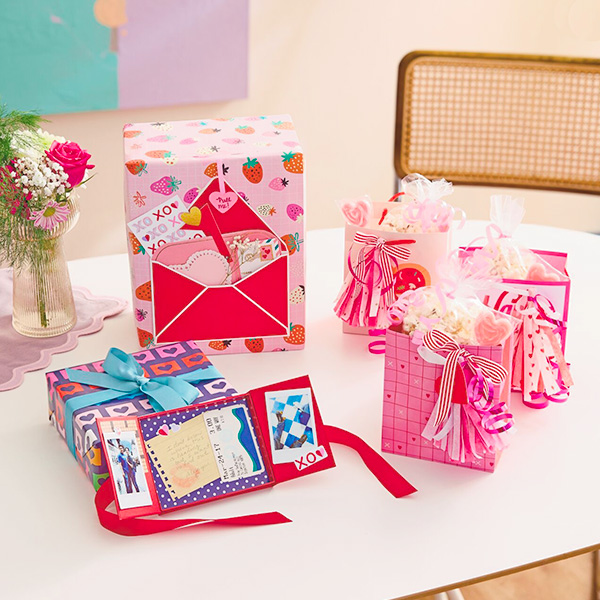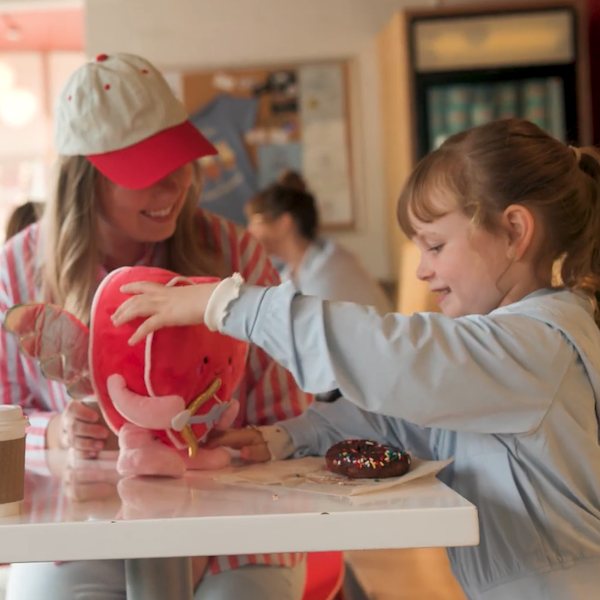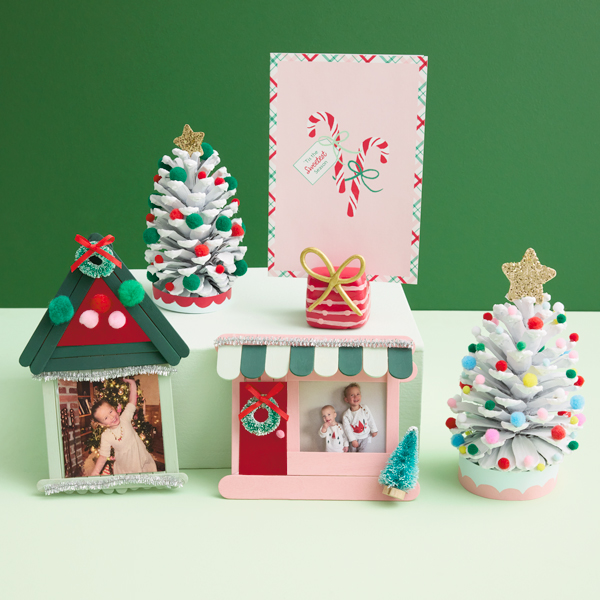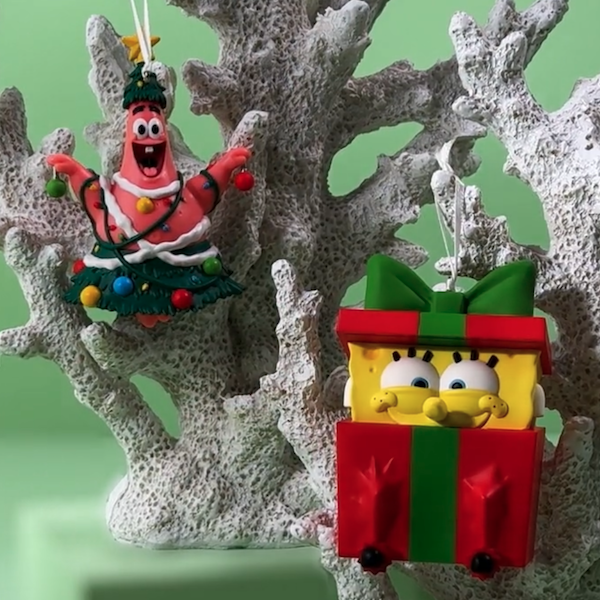How to support foster families and families adopting a child
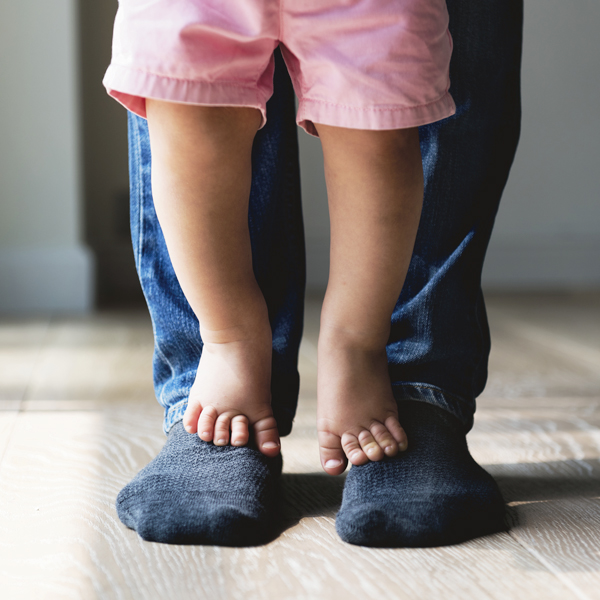
It’s so exciting when someone you know welcomes a child into their lives, whether by birth, adoption, or fostering. You want to celebrate this sweet family, give them your best wishes, and support them in this brand-new chapter of their story. And while you may come across three million baby shower ideas online, you may not have great luck finding ways to assist and celebrate the foster families you know and love.
That’s where we hope to help. Being a good friend to a foster family or family in the process of adopting a child comes with its own unique considerations, and we’d love to empower you to be amazing at it.
Inspired? Create and share by tagging @HallmarkStores.
Helpful hints for supporting foster families and families during the adoption process (parents and kids)
Practical help
There are so many ways to be helpful to a family welcoming a child of any age. We’ve got a good list here.
Pro Tip: Rules for who can babysit foster children differ by state and agency. If you’d like to help with childcare, check with the foster parents and do your homework to learn what’s allowed.
Moral support
Being involved with foster care or adoption is an emotional journey for everyone—foster parents, biological parents, and children. Recognize that feelings may differ from day to day, and let your friends know you’re there for them through the good times and the challenging times. The best things you can do are listen and affirm their experience. Call, text and send cards. Check in regularly to show you care.
Family occasions and milestones to recognize
Consider doing something special for:
- Foster parents becoming licensed providers: They’ve put in a lot of work to reach this milestone. Send them a congratulations card or give them a bottle of something to “cheers.”
- Adoptive parents who’ve brought home their child: Help them welcome their new little family member by asking them what they need, and following up accordingly. Here are some ideas that might be helpful.
- Mother’s Day and Father’s Day:
- For foster parents: Send them a card with a special note recognizing what good parents they are.
- For foster kids: Consider that these holidays may bring up difficult or conflicted feelings. If you are close, be a listening ear.
- For adoptive parents: They may still be in the middle of the adoption process, whether or not they’ve brought their child home. Acknowledging their dedication and the love they have for their new child, regardless of the stage they’re in, would be a lovely gift.
- For adopted kids: If they’re old enough, consider helping them make a DIY gift to surprise their parents.
- Foster or adoptive kid’s birthday: Get to know their favorite things (foods, hobbies, characters, shows, etc.), and give a gift that shows you know and care about them. If you live nearby, offer to help plan a birthday party.
- Adoption Day: If a foster placement results in an adoption, or a long-awaited adoption is finalized, send flowers, balloons or special gifts to commemorate the day.
Pro tip: Adoption Day can be especially meaningful for an older child who has been in the foster care system for an extended amount of time. Officially belonging to a family might be something they’ve wanted or hoped for a very long time! If this is the case, acknowledging how much they’re loved or telling them how much they’re appreciated just for who they are is sure to mean a lot.
Safety and privacy
Keep in mind these special considerations for safety and privacy:
- Do not post photos, names, or personal information of foster kids online.
- Do not ask details about the child’s court case. It’s confidential.
- Adoptive parents of newborns often bring their baby home before the adoption is final. Again, do not post photos of the child’s face online until you receive permission from the parents that this is allowed.
- Avoid asking about a newborn baby’s birth mother or the situation that led to the baby’s adoption. The parents may not be allowed or may not wish to talk about it.
What to say (and what not to say) to adoptive and foster families
When talking with parents…
- DON’T say:
- “Do you think you’ll love them as much as your own?”
- “Are you afraid they’ll be damaged?”
- “Aren’t you worried about how it will affect your own children?”
- “I could never foster/adopt…”
- “Those kids are so lucky.” Foster kids have been through the trauma of being separated from their families. No matter the circumstances, be mindful that their experiences can be painful.
- Anything bad about the child’s biological parent(s).
- DO say:
- “I’m so happy for you.”
- “You’re really good at this.”
- “I’m here to support you however I can.”
- “I’m looking forward to getting to know __________.”
When talking with foster or adopted kids…
- DON’T say
- “You’re so lucky to have foster parents like these.”
- Anything bad about their biological parent(s).
- Anything that assumes you know their story.
- Anything about their being adopted unless you know for certain their parents are okay with it, and even then, it’s good to understand how their parents routinely talk to them about it.
- DO say
- “It’s so nice getting to know you.”
- “You’re really great at ______.”
- “You have such a big heart!”
- Anything that shows you’re interested in them as a person, not as a foster or adopted child. Listening is a helpful way to show you care.
It’s critical to understand that some parents choose to be very open with their adoptive children, while others prefer to wait until a child is older to disclose this information. Other parents may have reasons for not wanting to disclose this information at all. Remember: This is their family and their choice, and their wishes should always be respected.
Foster care myths debunked
If all we know about fostering is what we’ve seen in the headlines, we’re sure to carry around some unhelpful stereotypes. The truth is often much less sensational and much more nuanced than what we see in the news.
The truth about foster kids
- They are not irreparably damaged. Many kids just need consistency and a safe environment in which to process their trauma—which can be caused by many kinds of living situations or life events (abuse, neglect, abandonment, addiction, scarcity, etc.).
- Many have biological parents who love them and whom they love, no matter what their circumstances may be.
- They don’t all want to be adopted.
The truth about biological parents with kids in foster care
- Most are not abusive. Many become involved with the system because of neglect or addiction, which can be a result of poverty and other environmental factors. They love their kids, even when they can’t provide a permanent home for them.
The truth about foster parents
- Most are not trying to make money off of the system. Fostering is not a lucrative endeavor.
- They are not trying to take people’s kids away. They are trying to provide a safe, caring home for a child in need.
Foster care lingo
You don’t need to become an expert on every acronym, but learning these few terms will help you know what your foster friends or adopting friends are talking about.
Permanency—The goal of every case with a child in state custody—to find a safe, loving, permanent home that can meet the child’s needs. Permanency might mean going home to a biological parent, being adopted by relatives, or being adopted by a foster family.
Kinship placement—A child is placed in the home of a friend or family member they knew previously, as opposed to with foster parents they didn’t know before.
Reunification—A child returns home to their biological parent(s).
Respite care—Short-term supervision of foster children by a trained provider, meant to give foster parents and children time apart to recharge.
CASA/GAL (court-appointed special advocate/guardian ad litem) —A trained volunteer who, along with an attorney, represents the child’s best interest in the case. Especially for younger children, a CASA/GAL is the child’s voice in court.
Adoption triad—The three-sided relationship between birth parent(s), the adopted child and the adoptive parents. This relationship can be anything from non-existent to close and communicative.
Confidential adoption or closed adoption—An adoption in which the birth parent(s) and adoptive parent(s) don’t meet, exchange identifying information, and don’t communicate or maintain contact with each other.
Home study—A review of the adoptive family’s home environment, health, lifestyle, support system, values, beliefs and more. This can be a very stressful part of the adoption process for prospective parents.
Shop Family
See allYou may also like
See more-
Valentine's Day Filling the day with love: Valentine’s Day date and activity ideas
Hey! Heard the one about Hallmark inventing Valentine’s Day? Welp, we didn’t. But I’m thinking we got that rep becaus...
-
Gifting Put me in coach! 🐾
Need a little motivation? Coach Snoopy and the rest of the Peanuts gang are here to inspire all kinds of spring fun t...
-
Valentine's Day 3 adorable Valentine’s Day gift wrap ideas that’ll show them they’re loved
There are a select few times a year that we go all out for our favorite people: Their birthdays. The holidays. And if...
-
Gifting Spend Valentine’s Day with an iconic couple
Maybe he's not into going out on Valentine's Day. Or maybe she'd rather watch sci-fi movies than a rom-com. If either...
-
Valentine's Day 200+ Valentine’s Day gift ideas for everyone in your heart
In junior high, I made a giant Valentine’s Day collage for my first girlfriend. She loved it. Was it amazing or dorky...
-
Valentine's Day Funny Valentine’s Day cards (and ridiculous messages to go inside them)
At Hallmark we have Valentine’s Day cards for everyone you love to laugh with: your significant other, your friends, ...
-
Card Ideas 5 tips to help you get the most out of Hallmark’s Semi-Annual Sale
I don’t know a person on this earth who doesn’t love a good semi-annual sale. In fact, I know several people who keep...
-
Valentine's Day Make little hearts happy this Valentine’s Day 💞
Nothing lights up a little one's face like letting them know just how much they're loved. Okay...except for when they...
-
Valentine's Day Valentine's Day gifts for him: 100+ ideas for the boyfriends, husbands, dads and sons in your life
Who’s ready for Valentine’s Day?! 🥰 We absolutely love this holiday and can’t think of a more perfect time to shower ...
-
Calendar Flip Spring Forward: March 2026 Holidays and Observances
Color us excited! From the wearin’ of the green and more sunny fun to colorful Holi festivals and celebrating crayons...
-
Calendar Flip Welcome a New Year: January 2026 Holidays and Observances
HAPPY NEW YEAR! If that hurt your head, you might have celebrated a little too much. When you’re feeling better, we h...
-
Calendar Flip Hello, Love: February 2026 Holidays and Observances
Let’s warm up this cold month with love and connections. From valentine cards to dressing up your pet, this month has...
-
Christmas Christmas gift wrap ideas to match your holiday personality
If you’re anything like me, the holiday season can make you tap into different sides of yourself. Maybe you become th...
-
Gifting 60+ Peanuts® Snoopy gifts to help fans channel their favorite beagle
It was a dark and stormy night in the winter of 2015. I was 17 years old, overwhelmed with AP classes, senior-year st...
-
Christmas 3 Christmas kids craft ideas, plus activities for even more easy holiday fun
From decorating the house to baking cookies, the Christmas season gives us so many opportunities to get creative and ...
-
Christmas The best Christmas gift idea: Bikini Bottom BFFs
Got a bestie who's as silly as you? Or one who's there through all of life's storms with a smile? Then we think this ...
-
Christmas Which Disney Pixar character is your favorite? 🤔
Thankfully, with so many beloved Disney Pixar character Keepsake Ornaments, you won't have to choose a favorite this ...
-
Christmas Not having Cher on your tree? As if! 💅
If you're a Millennial, we predict you will be majorly, totally, butt crazy in love with this Clueless Keepsake Ornam...
-
Christmas 20 vintage Christmas ideas to turn up the charm this holiday season
When I think of my perfect Christmas, vintage vibes are always what come to mind first. Santa’s sleigh in a dreamy wi...
-
Christmas 20+ ideas to help you plan your trip to the Hallmark Christmas Experience
Ever wanted to step inside of a picture-perfect Hallmark Christmas movie? Or travel to a place where you could immers...



